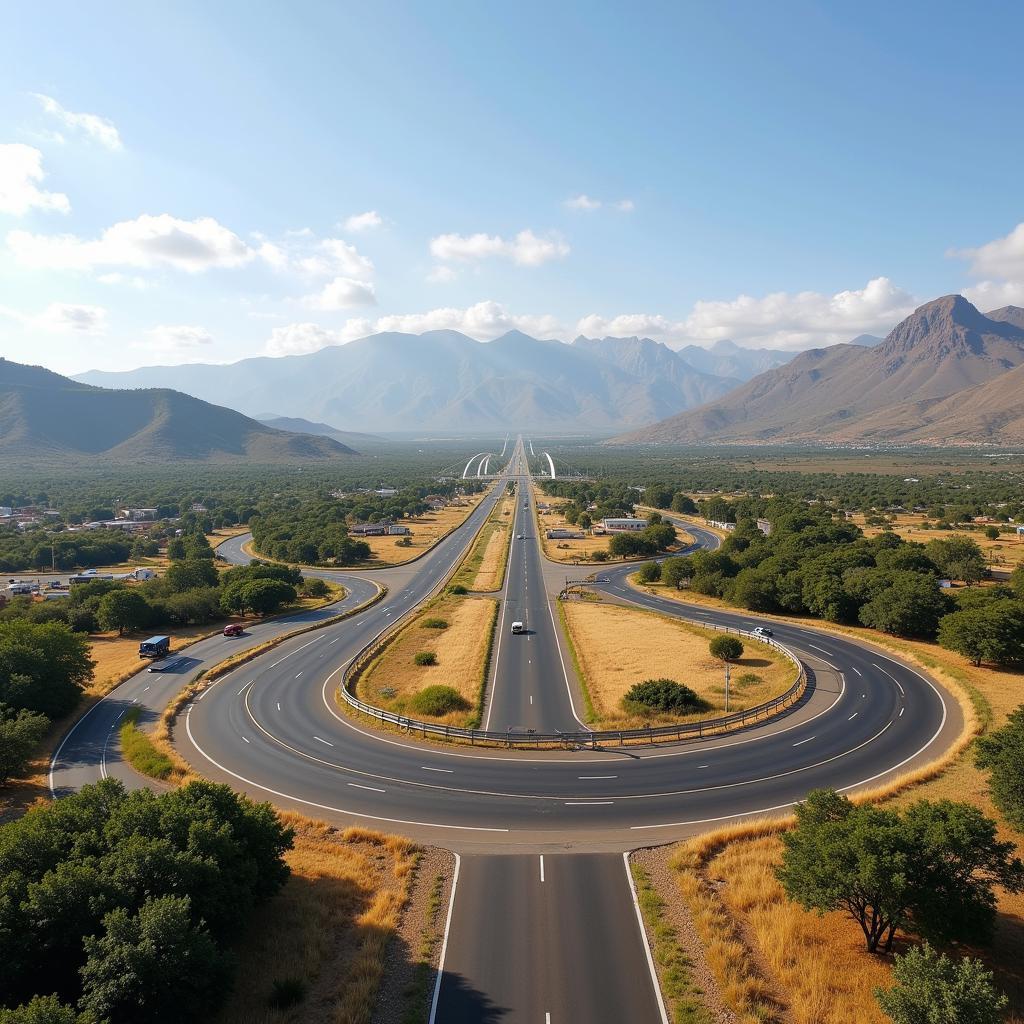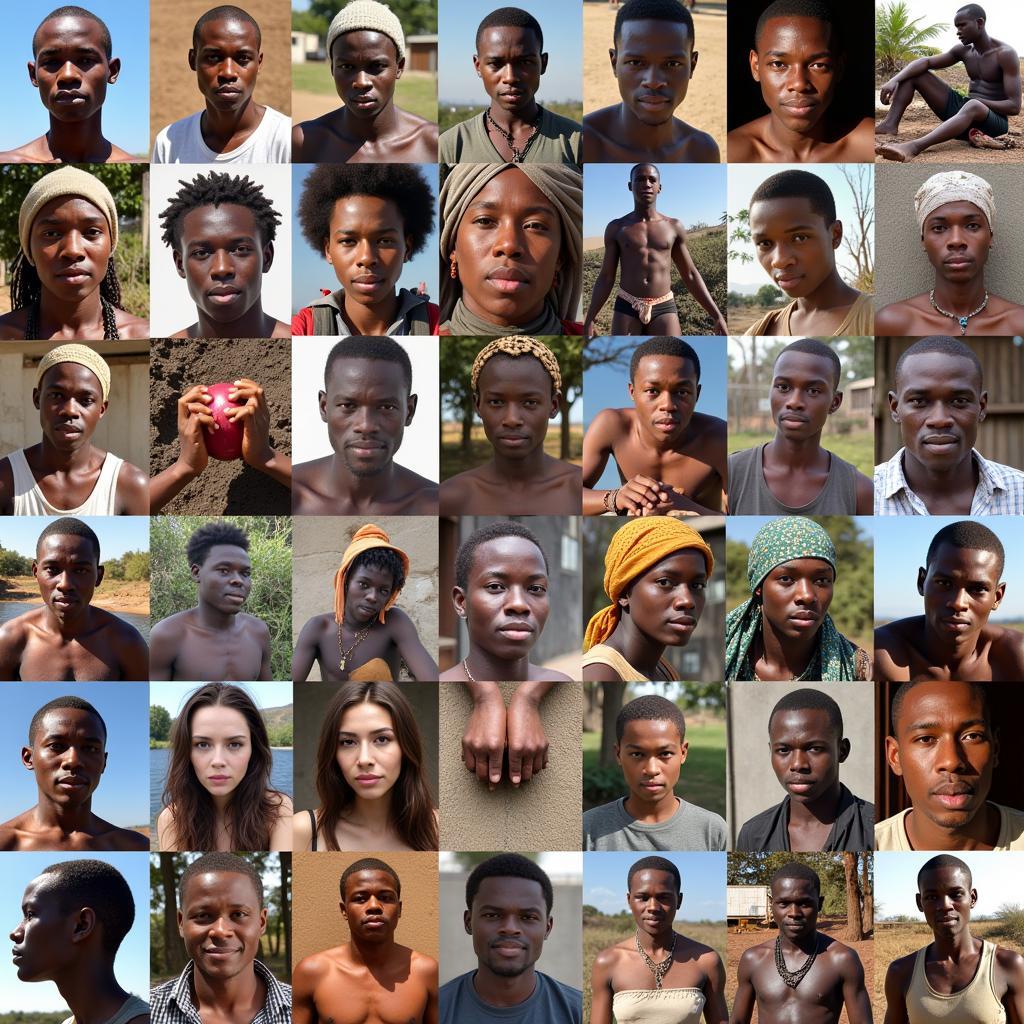African Development Bank’s Impact on South Africa
The African Development Bank (AfDB) plays a crucial role in South Africa’s development, providing funding and technical assistance for various projects aimed at boosting economic growth and improving the lives of its citizens. This partnership spans decades and has contributed to key sectors such as infrastructure, agriculture, and education. The bank’s involvement is essential for fostering sustainable development and addressing critical challenges faced by the nation.
Infrastructure Development: A Key Focus of the African Development Bank in South Africa
The AfDB recognizes the importance of robust infrastructure for sustainable economic growth. In South Africa, the bank has invested heavily in projects aimed at upgrading and expanding various infrastructure networks. These include investments in transportation, energy, water, and sanitation infrastructure. By supporting these vital projects, the AfDB is helping to improve connectivity, facilitate trade, and create jobs, ultimately contributing to South Africa’s economic advancement. One example is the bank’s support for the development of renewable energy projects, which aims to address the country’s energy challenges and promote a transition to a greener economy.
The importance of these investments cannot be overstated. Improved infrastructure not only boosts economic activity but also enhances the quality of life for ordinary citizens. Access to reliable electricity, clean water, and efficient transportation systems are essential for human development and societal progress.
 African Development Bank Infrastructure Development in South Africa
African Development Bank Infrastructure Development in South Africa
Promoting Sustainable Agriculture through the African Development Bank
Agriculture remains a vital sector in South Africa’s economy, employing a significant portion of the population and contributing to food security. The AfDB actively supports agricultural development in the country through various initiatives. These include providing funding for smallholder farmers, promoting climate-smart agriculture, and investing in value chain development. By empowering farmers and strengthening agricultural practices, the bank aims to enhance food production, improve rural livelihoods, and promote sustainable agricultural growth.
For example, the AfDB has financed projects that provide farmers with access to improved seeds, fertilizers, and irrigation technologies. These initiatives have helped to increase crop yields and improve the resilience of farming communities to climate change.
The AfDB also recognizes the importance of skills development and capacity building within the agricultural sector. The bank has supported programs aimed at training farmers in modern agricultural techniques, financial management, and business development. These programs equip farmers with the necessary knowledge and skills to run successful and sustainable agricultural enterprises. Check out resources available through the African currency forum.
Education and Skills Development: Investing in South Africa’s Future
Recognizing the transformative power of education, the AfDB has made significant investments in education and skills development in South Africa. The bank supports various programs aimed at improving access to quality education, promoting technical and vocational training, and developing critical skills needed for the 21st-century workforce. By investing in human capital, the AfDB is helping to empower South Africa’s youth and equip them with the tools they need to succeed in the global economy.
These investments are not limited to traditional educational institutions. The AfDB also supports innovative educational programs that leverage technology to reach underserved communities. For example, the bank has financed projects that provide access to online learning platforms and digital resources, expanding educational opportunities for learners across the country. For specific CV advice, see this helpful resource: African CV format.
What is the role of the African Development Bank in South Africa?
The African Development Bank’s role in South Africa is multifaceted, encompassing financial and technical support for infrastructure development, agriculture, education, and private sector growth, contributing to the country’s economic and social development.
How does the African Development Bank support infrastructure in South Africa?
The AfDB invests in transport, energy, water, and sanitation infrastructure projects, fostering economic activity, job creation, and improved quality of life.
What are the AfDB’s agricultural initiatives in South Africa?
The AfDB supports smallholder farmers, promotes climate-smart agriculture, and invests in value chain development to enhance food security and rural livelihoods. Perhaps you are also interested in the African currency rate in Pakistan today.
Conclusion
The African Development Bank’s partnership with South Africa is instrumental in driving sustainable development and improving the lives of its citizens. Through strategic investments in infrastructure, agriculture, and education, the AfDB is helping to unlock South Africa’s potential and build a more prosperous future. The bank’s continued commitment is vital for addressing the country’s challenges and fostering inclusive economic growth. For those interested in the bank’s identification procedures, you can find information regarding the African development bank ID card. You might also find this helpful: 664 261south african money in inr.
FAQ
- What is the African Development Bank’s main objective in South Africa?
- How does the AfDB contribute to job creation in South Africa?
- What are some examples of successful AfDB-funded projects in South Africa?
- How does the AfDB ensure the sustainability of its projects in South Africa?
- How can individuals or organizations partner with the AfDB in South Africa?
- What is the impact of the AfDB’s investments on poverty reduction in South Africa?
- How does the AfDB work with the South African government on development projects?
Need assistance? Contact us 24/7: Phone: +255768904061, Email: kaka.mag@gmail.com or visit us at Mbarali DC Mawindi, Kangaga, Tanzania.

